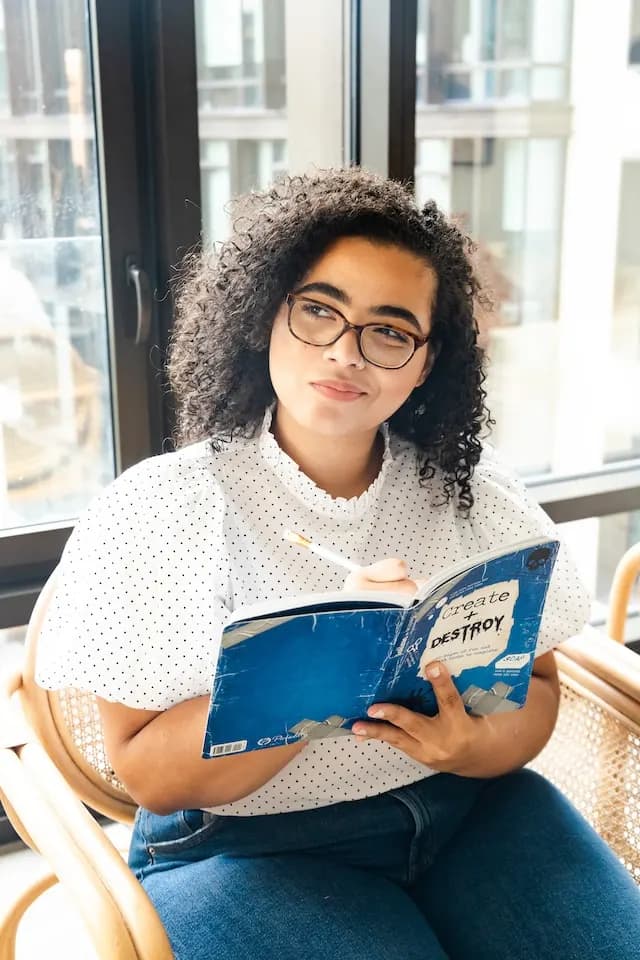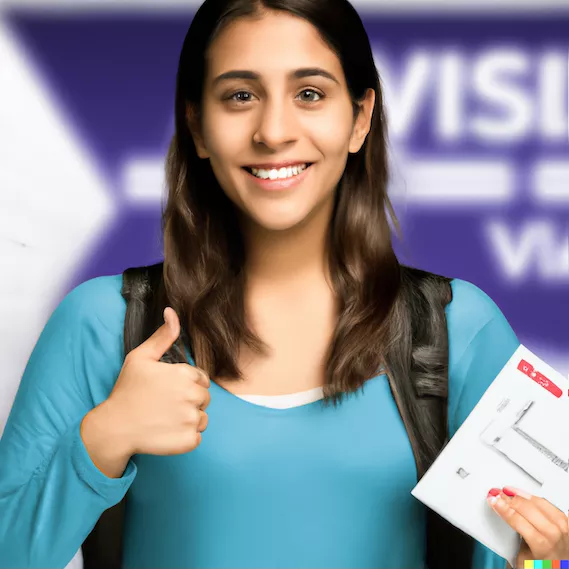Top 25 J1 Visa Interview Questions for Medical Training Programs in 2025

Key Highlights
- Prepare for your J1 Visa internship interview by practicing clear, confident answers.
- Research the internship company and align it with your career goals.
- Link the internship experience directly to your future career plans.
- Understand the purpose of the internship and avoid vague answers like 'for sightseeing.'
- Make sure you’re aware of visa rules, such as not working outside your internship.
- Always emphasize your intention to return home after the internship.
- Be specific about how the internship relates to your field of study.
- Demonstrate your ability to manage challenges and work in a fast-paced environment.
Applying for a J1 visa for medical training programs in the U.S. is a big step in your professional journey. You’ve aced medical school, completed your residency, and now you’re preparing for the next milestone—your J1 visa interview. This interview isn’t just a formality; it’s the U.S. Embassy’s way of ensuring you’re the right candidate for the program and that your intentions are aligned with the visa’s purpose.
Whether you’re nervous or just need a little guidance, this article will walk you through 25 common J1 visa interview questions that medical professionals often encounter. Not only will I provide the questions, but I’ll also give you solid sample answers and explain why these responses work.
So, let’s dive in and get you ready for the interview room!
1. Why do you want to pursue medical training in the U.S.?
Sample Answer: The U.S. offers some of the most advanced medical training programs in the world. I’m eager to learn about cutting-edge technology and techniques that I can eventually bring back to my home country. My goal is to become a specialist in [specific field], and the U.S. provides the ideal environment for this.
Reasoning: This answer highlights that you’ve done your research, you’re genuinely interested in the program, and you have long-term goals that include using your U.S. experience to contribute back home.
Tip: They want to know you’re not just there for the fast food—mention something specific about the U.S. healthcare system!
2. What medical specialty are you planning to pursue, and why?
Sample Answer: I am planning to specialize in [specific field, e.g., oncology] because of my personal experiences with cancer patients during my residency. I’ve seen firsthand how advances in oncology can improve patient outcomes, and I want to contribute to this field with the knowledge I gain in the U.S.
Reasoning: This answer shows that your choice of specialty is based on experience and passion, making you a more compelling candidate.
Tip: Avoid vague answers—be as specific as a surgeon’s scalpel!
3. What makes the U.S. the best place for your medical training?
Sample Answer: The U.S. is at the forefront of medical research, and I’m particularly excited about the hands-on experience I’ll get with state-of-the-art technology. The diversity of cases I’ll encounter will provide me with a broader skill set, which is crucial for my long-term career goals.
Reasoning: This response combines both technical advancement and the broader range of experience available in the U.S., making it clear you value what their healthcare system offers.
Tip: Remember, this isn’t a vacation—they want to see your professional enthusiasm!
4. Can you explain how this training will benefit your home country?
Sample Answer: In my home country, we lack specialists in [specific field]. By completing this training, I’ll be equipped to fill this gap and introduce new techniques that are currently unavailable. I’m also hoping to train future doctors when I return.
Reasoning: This response demonstrates that you have long-term goals tied to your country’s medical landscape, which is crucial for the J1 visa.
Tip: Make it about them, not just you—show how everyone wins!
5. How will this medical training program improve your career prospects?
Sample Answer: This training will provide me with skills and certifications that are recognized globally, making me a more competitive candidate for future roles. More importantly, it will allow me to specialize in an area of medicine that’s in high demand but not well developed in my country.
Reasoning: This answer shows forward-thinking and awareness of both global and local healthcare needs.
Tip: Let them know you’re not just here for a certificate—this is about your future!
6. What is your plan after completing the J1 visa program?
Sample Answer: After completing my training, I plan to return to [home country] and apply the skills and knowledge I’ve gained. I’m particularly interested in starting a clinic in underserved areas where specialized medical care is lacking.
Reasoning: The J1 visa requires you to return to your home country, so this answer shows your clear intent to follow through with that.
Tip: Don’t sound like you’re planning to ditch your home country—go back and make a difference!
7. Why did you choose this particular medical training institution?
Sample Answer: I chose [institution name] because of its strong focus on [specific area of study]. The faculty’s expertise and the program’s integration with [specific hospitals or research centers] were also major factors in my decision.
Reasoning: This demonstrates that you’ve done thorough research, which shows seriousness and commitment.
Tip: Talk about your program choice like it’s the best thing since sliced bread.
8. Have you been accepted into the medical training program?
Sample Answer: Yes, I’ve been formally accepted into [institution name] for their [specific program], and I’ve already submitted all the necessary documentation. I’m set to start on [start date].
Reasoning: This is a straightforward answer that confirms your status with the training program.
Tip: No drama here—just be clear and concise.
9. How will you finance your medical training program in the U.S.?
Sample Answer: My medical training is fully funded by [source of funding], which includes tuition, living expenses, and other necessary costs. I also have personal savings to cover any additional expenses.
Reasoning: This response reassures the visa officer that you have the financial means to support yourself during your training.
Tip: Make sure you’ve got your money matters in order—no one wants a broke doctor!
10. How do you plan to adjust to the U.S. healthcare system?
Sample Answer: I’m prepared to adapt by staying open-minded and learning from my mentors and peers. I understand that the U.S. healthcare system is different from that in [home country], but I’m eager to embrace those differences and learn from them.
Reasoning: This shows you’re flexible and willing to learn, which is vital in a new environment.
Tip: Keep an open mind and leave room for new experiences—don’t be stuck in your ways!
11. What is your medical background and experience?
Sample Answer: I graduated from [medical school name] and completed my residency at [hospital name]. I’ve worked in [specific department], which exposed me to [relevant experiences related to the program].
Reasoning: This highlights your qualifications and relevant experience, which are critical for your visa approval.
Tip: Humble bragging is key—show your credentials without sounding cocky!
12. Have you ever traveled to the U.S. before?
Sample Answer: No, this will be my first time in the U.S., but I’ve traveled to [other country], which gave me experience in adapting to new cultures and environments.
Reasoning: This shows that although you’ve never been to the U.S., you’ve proven you can handle cultural changes.
Tip: First time in the U.S.? No problem—just prove you can adapt!
13. How do you plan to overcome any language barriers in the U.S.?
Sample Answer: I’ve been working on improving my medical English through online courses and speaking with colleagues. I also understand medical terminology, which is mostly universal, so I don’t foresee major issues.
Reasoning: This shows you’ve anticipated potential challenges and are actively preparing for them.
Tip: Language barriers? Pfft. You’ve got this.
14. Do you have any friends or family in the U.S.?
Sample Answer: I don’t have any close relatives in the U.S., but I’ve connected with fellow doctors in the program, and I’m excited to build new relationships with my colleagues.
Reasoning: This shows that while you don’t have a support network, you’re ready to create one.
Tip: Make new friends—networking is key in the medical world!
15. What do you hope to learn from this medical training program?
Sample Answer: I hope to gain in-depth knowledge of [specific field] and improve my diagnostic and treatment skills through hands-on experience with diverse patient cases.
Reasoning: This response demonstrates that you have a clear focus and are motivated to learn.
Tip: Sound like a sponge—ready to soak up all that knowledge!
16. How will this training improve healthcare in your home country?
Sample Answer: In [home country], we lack access to the latest treatments in [specific field]. After completing my training, I’ll bring these advancements back home, helping improve patient care and outcomes.
Reasoning: This answer ties back to the core purpose of the J1 visa—benefitting your home country.
Tip: Show them you’re bringing the healthcare revolution home!
17. What challenges do you think you’ll face during your training?
Sample Answer: I anticipate that adjusting to the fast-paced nature of U.S. healthcare may be a challenge, but I’m confident that with the support of my mentors and peers, I’ll adapt quickly.
Reasoning: This shows humility—you recognize challenges but are prepared to face them.
Tip: Challenges? Think of them as character-building exercises!
18. How do you plan to maintain ties with your home country during your training?
Sample Answer: I’ll stay in regular contact with my colleagues and mentors back home and continue contributing to online medical forums in my home language to keep up with developments in my country.
Reasoning: This answer shows you’re committed to maintaining connections, which is important for a J1 visa.
Tip: Keep one foot in your home country’s medical field—don’t go ghost!
19. What do you know about the J1 visa’s two-year home residency requirement?
Sample Answer: I’m fully aware of the two-year home residency requirement after my training. I’m committed to returning to [home country] to apply my skills and contribute to the medical field.
Reasoning: This is a crucial requirement for the J1 visa, and showing that you’re aware of it strengthens your case.
Tip: Don’t try to skip the fine print—it’s important!
20. What are your long-term career goals?
Sample Answer: Long-term, I hope to open a specialized clinic in [home country] that focuses on [specific field]. I also want to contribute to medical education by training new doctors in these advanced techniques.
Reasoning: This shows ambition and a clear vision for the future, which is always a plus.
Tip: Think big! They love to hear you’ve got grand plans.
21. How does this program align with your past experiences?
Sample Answer: My previous work in [specific field] aligns perfectly with the curriculum of this program. For example, my work with [specific case] will be directly applicable to the training I’ll receive in the U.S.
Reasoning: This ties your past experiences to your future training, making your case even stronger.
Tip: Connect the dots—show them how your past, present, and future are linked!
22. What’s your backup plan if you don’t get the visa?
Sample Answer: If I don’t get the visa, I’ll continue working in [home country] while looking for similar opportunities to gain specialized training, either locally or internationally.
Reasoning: This shows that while you’re committed to the program, you also have a realistic backup plan.
Tip: Always have a Plan B—they’ll respect your foresight.
23. How do you plan to manage work-life balance during your training?
Sample Answer: I’m used to working in high-pressure environments, but I prioritize self-care by exercising and maintaining strong social relationships. I’ll do the same in the U.S. to ensure I’m at my best.
Reasoning: This shows that you understand the importance of work-life balance, which is vital in the medical field.
Tip: Even doctors need to unwind—don’t be a workaholic!
24. How do you handle stress in high-pressure situations?
Sample Answer: During my residency, I handled stress by staying focused on patient care and breaking tasks into manageable parts. I also practice mindfulness techniques, which help me stay calm under pressure.
Reasoning: This answer shows that you’re prepared for the demands of a U.S. medical training program.
Tip: Stay cool under pressure—it’s like a superpower for doctors!
25. Why should we grant you the J1 visa for this medical training program?
Sample Answer: I’m committed to using the advanced skills I’ll gain in this program to improve healthcare in my home country. I’ve already contributed significantly to [specific project or initiative], and this training will help me make an even greater impact.
Reasoning: This is your final pitch—showing that you’re dedicated, qualified, and have a clear vision for the future.
Tip: Think of this as your elevator pitch—short, sweet, and persuasive!
Final Thoughts: Crack That J1 Visa Interview!
These are some of the most common J1 visa interview questions you’re likely to encounter when applying for a medical training program in the U.S. By preparing thoughtful, specific answers, you’ll show that you’re serious about your career, understand the visa’s requirements, and are ready to make the most of your time in the U.S.
So, put on your metaphorical scrubs and get ready to rock that interview! Good luck, future doctor!
Have Questions About This Topic?
Join our community to get personalized advice and share experiences with others going through similar visa processes.




